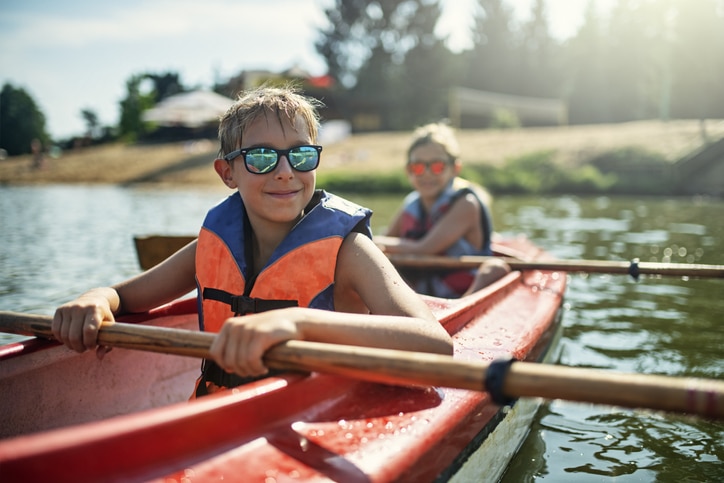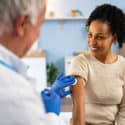
Summer camp safety during COVID-19 is something many families are trying to navigate. In the midst of the pandemic, community summer programs are going to look a lot different this year. While some parents are deciding whether or not to send their children to camp, many others don’t have a choice. For many families, community summer programs serve as child care for parents who have to go to work. These programs also provide a place for children to have fun in a safe environment.
This year, organizations are modifying the traditional summer camp models. They’re making changes that emphasize and prioritize the health and safety of campers. Some examples of changes might include wearing masks when appropriate and the daily cleaning of sports gear. The American Camp Association and the YMCA of the USA (Y-USA) created detailed guidelines outlining policies that camps can use to keep children safe during the pandemic. The guidelines provide a host of details about everything from pool safety to cleaning life jackets to prevent the spread of the virus.
It’s comforting to see that organizations are putting safety first. However, it’s hard to picture a group of 6- or 7-year-olds at summer camp practicing social distancing and rigid hygiene. We’ve listed some actions families can take to help minimize the risk of bringing COVID-19 into their homes this summer.
Reduce Your Risk This Summer
- Opt for outside! Typically, about 20 million enjoy roughly 14,000 camps across the country every year. Summer Camp is all about togetherness, friendship, and fun. If your children usually attend an indoor camp, opt for one where they’ll spend more time outside. Creating more space for everyone and being outdoors where there is plenty of fresh air will lessen the risk.
- Get tested. Since there is no vaccine yet, this will give you and your family the information you all need before you head to summer camp. When children and families get tested, it can bring peace of mind. If you walk into any MainStreet Family Care clinic, we can administer the viral infection test (swab) as well as the antibody test. You’ll receive your results in 4-6 days. Retesting periodically throughout the summer can also provide your family with the comfort and peace of mind they need.
- Teach the kiddos to elbow bump. Gone are the days of high-fives and hugs. Even though getting tested provides peace of mind, it is only one of many layers of prevention. By resisting those hugs and high-fives we miss so much from friends, we can reduce the risk and the spread of illness.
- Consider the risk. Until there’s a vaccine, the most vulnerable children should consider staying at home if they can. If someone in your family is likely to become severely ill, try to take as many precautions as possible. For some families, this might mean attending a virtual summer camp instead of a traditional one.
- Make sure the summer camp is a decision your family makes together. Discuss the risks and ensure that the summer camp you select is a good fit for your family. Learn about summer camp safety policies and procedures your selected camp has put in place. In addition, teach your children that many of the new rules are to keep each other safe and protect one another from COVID-19.
- Ask all the right questions. You will want to be sure that you’re asking some good summer camp safety questions. Asking about their screening procedures is a good place to begin. In addition, it would be helpful to know what the notification procedures are in the event a camper or staff member has been diagnosed or comes in contact with someone who has COIVD-19.






